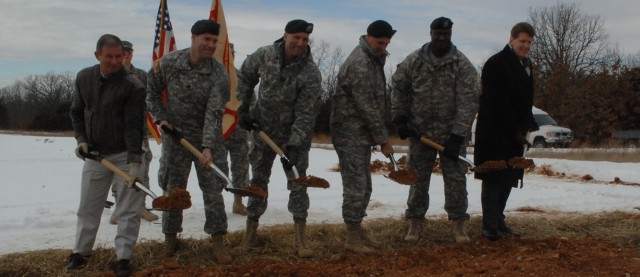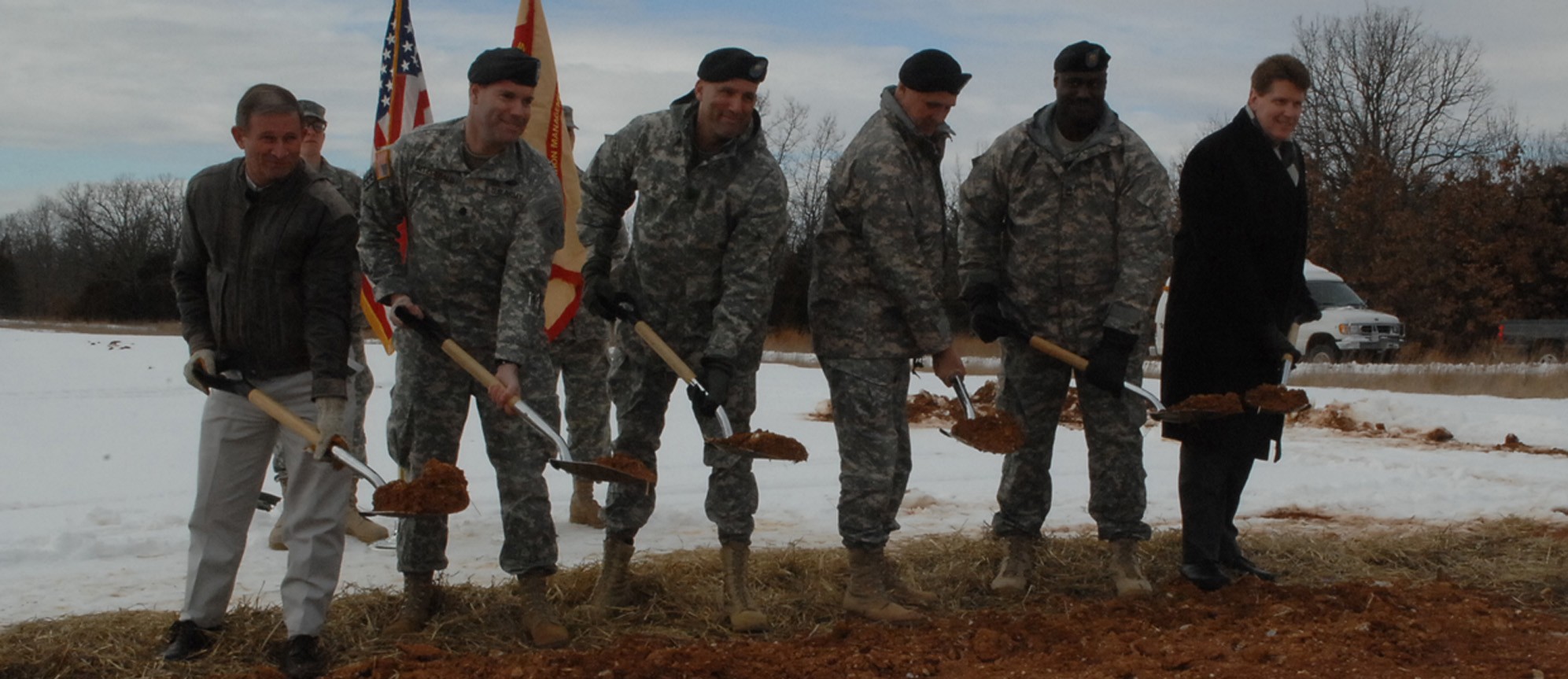
From left to right: Roy Bethel, Directorate of Public Works director, Lt. Col. Michael Fitzgerald, U.S. Army Corps of Engineers - Kansas City District deputy district engineer, Lt. Col. Paul Olsen, 249th Engineer Battalion commander and Pri... VIEW ORIGINAL
FORT LEONARD WOOD, Mo. - Fort Leonard Wood broke ground on the new U.S. Army Corps of Engineers Prime Power School at Normandy Training Area, Friday. The construction project is scheduled to be completed by March, 2011.
The new $29 million, 77,000 square-foot Prime Power School will provide training for prime electrical power and distribution systems, and will support Army, Air Force, Navy, Federal Emergency Management Agency and State Department operations.
The school trains Soldiers to operate and maintain the Army's inventory of medium voltage electrical power generation assets and perform various tasks relating to the electrical power production and distribution field.
Col. John Megnia, Fort Leonard Wood Garrison commander, shoveled one of the first scoops of dirt at the construction site.
"This move shows how our government continues to invest in Fort Leonard Wood and what a great place it is," Megnia said.
The new school will add another major tenant to the installation, Megnia said.
"We will not only have Training and Doctrine Command, Forces Command, Medical Command and Installation Management Command, we're also going to have the U.S. Army Corps of Engineers. So we've got the power - and it's prime," Megnia said.
The facility was required as a result of the 2005 Base Relocation and Closure Program, which determined the move of the school from Fort Belvoir, Va., to Fort Leonard Wood.
The school will consist of several classrooms, instruction labs, equipment training and testing areas, administrative offices, conference rooms, an auditorium and an outdoor equipment testing area.
In 2008, the school graduated 51 students, 46 Soldiers and five Sailors. It currently employs 34 Soldier and civilian staff members.
The school is unique for Soldiers because enrollment is not open to initial entry recruits, leaders said.
"All our graduates are noncommissioned officers. You have to have 24 months in service; be between the rank of specialist promotable and sergeant promotable; have a general technical score of 110, and you can be from any career field in the Army," said Master Sgt. Derek Harvin, Prime Power School noncommissioned officer-in-charge.
Graduates have an important role in combat, Harvin said.
"Our pinnacle job is the Contract Officer's Technical Representative position in a forward theater. We have a sergeant first class that works in a division level engineer cell. They are in-charge of the entire theater power grid; they oversee all the upcoming projects and maintenance," Harvin said.
Prime Power School graduates also have a role to play stateside, Harvin said.
"Right now, we have three platoons dispatched in response to the recent ice storms. We are under the National Response Framework (Department of Homeland Security), so we respond to ice storms, hurricanes and all manners of disaster," Harvin said.
Prime Power Soldiers are a great example of NCOs being the backbone of the Army, Harvin said.
"Everyone we graduate is an NCO, and they are conducting operations in a professional manner. The reason they are given that great responsibility is because of the training they get at the Prime Power School," Harvin said.
For Prime Power School application information, visit www.usace.army.mil/PPS.

Social Sharing